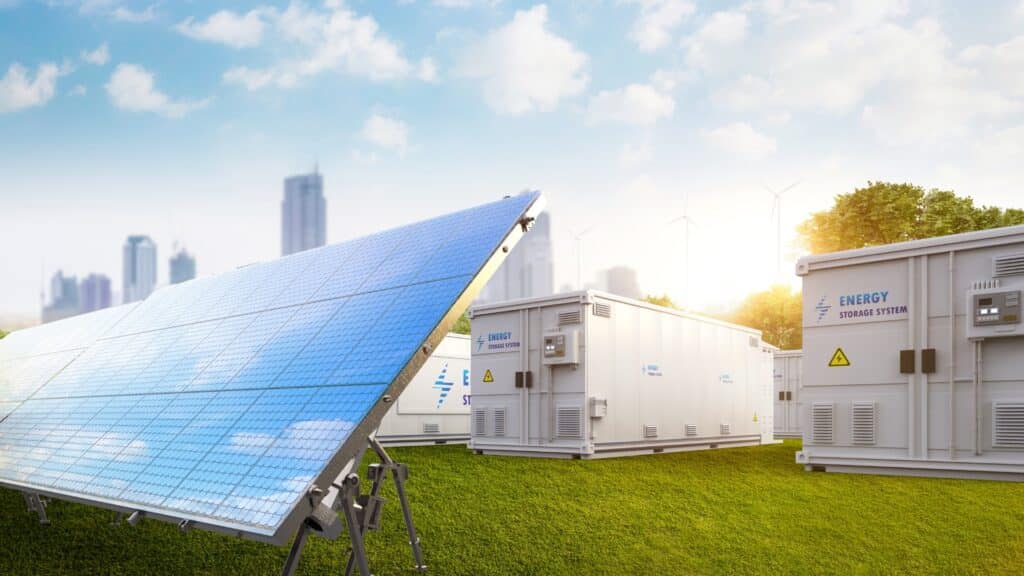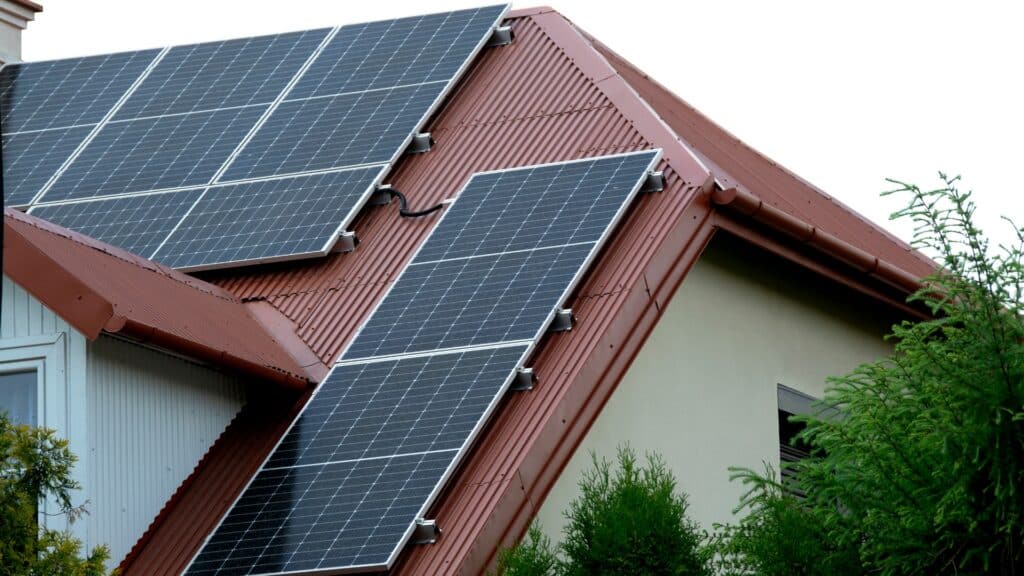Schoenherr Solar: The Expert Solar Panel Installers
Solar energy has become increasingly popular in recent years as a renewable and sustainable source of power. With growing concerns about climate change and the need for clean energy alternatives, solar energy offers a promising solution. Let’s explore the impact of solar energy, its efficiency in different climates, its applications in various sectors, and its environmental impact. Schoenherr Solar understands the benefits and drawbacks of solar energy, we can help make informed decisions about its adoption and its potential to replace fossil fuels.
Solar Energy Efficiency in Different Climates
The efficiency of solar energy systems can vary depending on the climate in which they are installed. While solar power is often associated with sunny environments, advancements in technology have made it possible to generate energy even in cloudy or cold regions. Let’s explore how solar power performs in different climate conditions.
Solar Power in Cold Climates
Implementing solar power in cold climates presents unique challenges and opportunities. Cold temperatures can actually enhance the efficiency of solar panels, allowing them to operate more effectively. However, snow cover can hinder energy production, requiring efficient insulation and snow management strategies. Solar systems in cold climates often include features like tilt mechanisms to shed snow and optimize sunlight exposure. By understanding the energy efficiency of solar power in cold climates, we can harness its full potential in these regions.

Solar Power in Cloudy and Rainy Climates
While solar power systems are typically associated with sunny weather, they can still be effective in cloudy and rainy climates. Advanced technologies like concentrated solar power enable solar energy production even in overcast regions. Additionally, incorporating battery storage systems allows for energy retention and utilization during periods of low sunlight. In rainy climates, larger solar panel systems may be required to compensate for reduced sunlight hours. Understanding the capabilities of solar power in these weather conditions is crucial for maximizing energy production and efficiency.
Solar Thermal Energy: An Overview
In addition to solar photovoltaic (PV) panels, solar thermal energy provides another avenue for harnessing the power of the sun. Solar thermal systems use sunlight to generate heat, which can be utilized for water heating, space heating, and even power generation. Let’s take a closer look at the collection, utilization, and pros and cons of solar thermal energy.
Collection and Utilization of Solar Thermal Energy
Solar thermal collectors, such as solar panels, absorb sunlight and convert it into heat energy. This thermal energy can be used for various purposes, including water heating in residential and commercial settings. High-temperature solar thermal systems, like solar power towers, use mirrors or lenses to concentrate sunlight onto receivers, generating steam that can power a turbine for electricity generation. Thermal energy storage is also an important component of solar thermal systems, enabling the retention of excess heat for use during non-sunlight hours.

Pros and Cons of Solar Thermal Energy
Solar thermal energy offers several advantages, including reduced energy costs, environmental benefits, and the ability to provide hot water and space heating. However, there are also drawbacks to consider, such as high upfront installation costs, intermittent energy availability, and the need for proper maintenance to ensure efficiency and longevity of the systems. Let’s explore these pros and cons in more detail:
Pros of Solar Thermal Energy:
- Reduced energy costs
- Environmental benefits
- Provides hot water and space heating
- Cons of Solar Thermal Energy:
Cons of Solar Thermal Energy:
- High upfront installation costs
- Intermittent energy availability
- Maintenance requirements for sustained efficiency
The Pros and Cons of Solar Energy
Solar energy, in general, offers numerous benefits, but it also has some limitations. In this section, we will delve into the advantages of solar energy, such as its renewable nature and potential for energy independence, and the drawbacks, including cost considerations and energy storage challenges.
Benefits of Solar Energy
Solar energy is a renewable energy source, which means it will never run out as long as the sun continues to shine. This makes solar power an attractive option, especially as we strive to reduce our reliance on fossil fuels. The use of solar energy can lead to significant cost savings by offsetting traditional energy consumption, particularly as advancements in technology have made solar panels more affordable and efficient. Furthermore, solar power helps promote energy independence, reducing dependence on external sources of energy. From an environmental perspective, solar energy production has a minimal impact, as it does not emit greenhouse gases or other pollutants associated with fossil fuel combustion. By harnessing the power of the sun, we can reduce carbon emissions and mitigate the effects of climate change.
Drawbacks and Limitations of Solar Energy
Although solar energy offers many benefits, there are some limitations to consider. Let’s explore the drawbacks of solar energy:
- Solar panels can be expensive to install, although the cost has decreased significantly over the years.
- Energy storage is a challenge, as solar power is generated during the day and may not align with peak energy demand in the evenings.
- The efficiency of solar panels can vary depending on factors such as weather conditions and panel orientation.
- Solar energy production is intermittent, requiring backup power sources or energy storage systems to ensure a consistent energy supply.
- Initial investment costs for solar installations can be a barrier for some consumers, despite long-term cost savings.
Solar Energy Applications
Solar energy has a wide range of applications, from residential use to powering large-scale industrial operations. In this section, we’ll explore how solar energy is being utilized in different sectors, including homes, businesses, and more.
Residential Use of Solar Energy
One of the most common applications of solar energy is in residential settings. Many homeowners have opted to install solar panels on their rooftops to generate electricity for their own use. This not only reduces their dependence on the power grid but also helps lower their electric bills. In addition, states often offer tax incentives and net metering programs, allowing homeowners to earn credits for excess energy they produce. Installing solar panels at home can also increase the property value, making it a beneficial investment in the long run.

Commercial and Industrial Use of Solar Energy
Solar energy is also being embraced by commercial and industrial sectors. Businesses can benefit from solar energy by reducing their operational costs through energy savings. Companies can install larger solar systems to power their operations, which can result in significant cost reductions. Solar energy also enables businesses to contribute to their sustainability goals and reduce their carbon footprint. Additionally, Schoenherr Solar has emerged as a major player in the energy industry, providing solar installation, maintenance, and consultation services.

The Environmental Impact of Solar Energy
One of the key advantages of solar energy is its positive environmental impact. By harnessing the power of the sun, we can reduce greenhouse gas emissions, minimize our carbon footprint, and mitigate climate change effects. In this section, let’s delve into the environmental benefits of solar energy.
Reducing Carbon Footprint with Solar Energy
Solar energy is a powerful tool in reducing carbon emissions and mitigating climate change. Unlike fossil fuels, solar energy does not produce greenhouse gas emissions during operation, making it a cleaner energy source. By utilizing solar power, we can minimize our reliance on fossil fuels and reduce our carbon footprint. The importance of solar energy in combating climate change cannot be overstated, as it offers a renewable and sustainable alternative to traditional power sources.
Potential Environmental Concerns of Solar Energy Production
While solar energy production is generally environmentally friendly, it is not without potential concerns. Let’s explore some of these concerns:
- Large-scale solar power plants require significant surface area, which can impact natural habitats and biodiversity.
- The production of solar panels involves the use of certain hazardous materials, such as lead and cadmium, which can pose environmental risks if not properly managed.
- Prudent water use is essential in solar power plant operations, as large amounts of water are often required for cleaning solar panels and cooling systems.
- Improper installation or maintenance of solar systems can lead to leaks of these materials, potentially causing larger environmental effects.
- Environmental laws and regulations must be in place to ensure responsible and sustainable solar energy production.
The Future of Solar Energy: What to Expect?
As we move towards a more sustainable future, the demand for renewable energy sources is expected to increase. In this section, we will explore the future of solar energy and its potential to fully replace fossil fuels.
Can Solar Energy Ever Fully Replace Fossil Fuels?
Solar energy has the potential to play a significant role in our future energy production. As demand for renewable energy sources grows, advancements in solar energy technologies will continue to improve efficiency and cost-effectiveness. While solar energy alone may not fully replace fossil fuels, it can contribute substantially to reducing dependence on non-renewable energy sources like natural gas. To fully transition to solar power, it will require continued innovation, policy support, and integration with other renewable energy sources, such as wind power. However, solar energy technologies are becoming more powerful, efficient, and affordable, making a future powered by solar energy increasingly feasible.
Why Choose Schoenherr Solar For Your Solar Needs
Solar energy is a sustainable and renewable source of power that offers numerous benefits. From reducing carbon emissions to saving on electricity bills, solar energy has a positive impact on both the environment and individuals. However, like any other energy source, it also has its drawbacks and limitations. It’s important to consider factors such as climate, efficiency, and cost when deciding on solar energy solutions. If you’re interested in exploring solar energy options for your home or business with Schoenherr Solar, get in touch with our experts who can guide you through the process and help you make an informed decision. Together, we can contribute to a greener and more sustainable future. Take a look at Our Blog for more information on solar energy!



